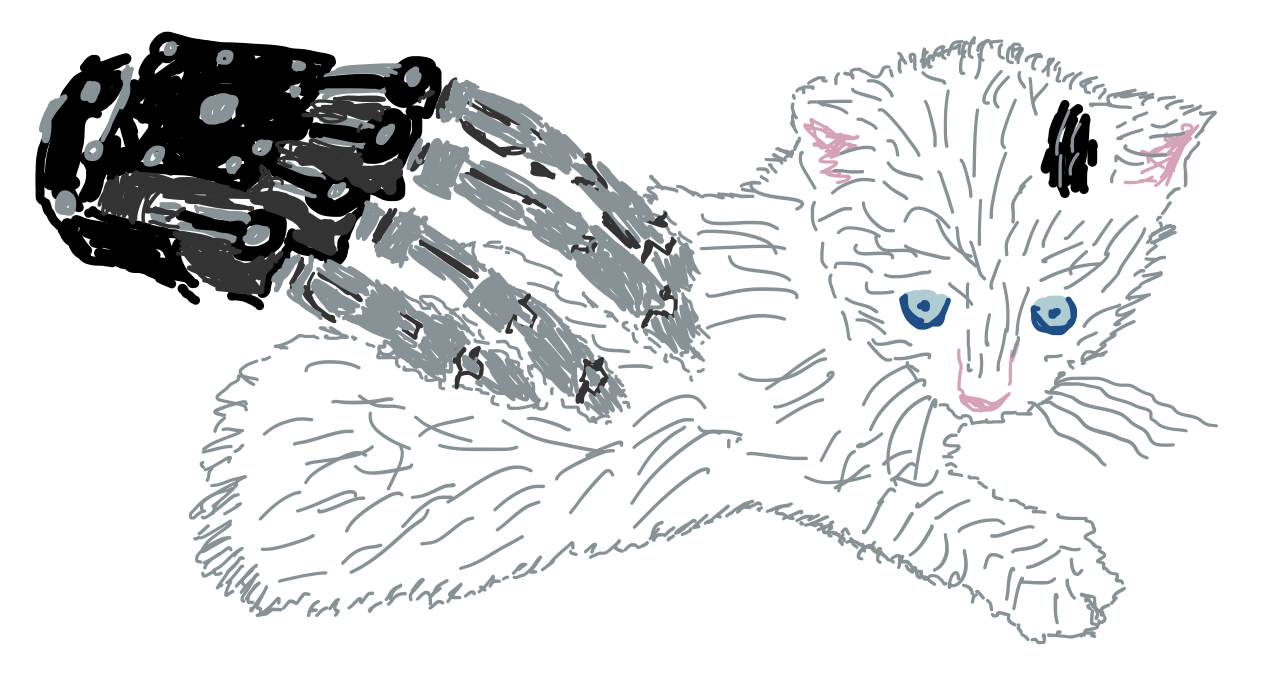The Talos Principle: Decoding Humanity
April 27, 2023
 Janet Briggs
Janet BriggsAs we sit on the verge of an AI revolution and our emails autocomplete as our art is being generated, it’s easy to feel that the human experience is losing a shred of its aura. Because after being thoroughly throttled by bots on the chessboard, and now reading villanelles penned by poet ChatGPT, we of humble humanity are posed with a question: What do we still have over the machines?
“The Talos Principle,” an action-puzzler by Croteam with a philosophical sci-fi edge, forces us to answer this question by putting us in the shoes of our current cognitive rival. See, civilization fell years ago, and we’re now in the throes of man’s last attempt at preservation. The scientists of the time had an idea—they’d save the human condition via a production of its perfect replication. They’d design a nurturing simulation for AI, a perfect world in which it could learn to be human. And so you’re the robot in this most rigorous of Turing tests, and it’s your job—after countless versions, countless generations—to finally escape from the womb.
Welcoming you and guiding you from the very start of your journey is the benevolent earworm called “Elohim,” whose “gardens” it is in which you now play. The gardens he refers to are halls of walls and polygons and puzzles that make up simulated isles of ancient Roman ruins. And as he shows you your tools and you make initial progress, you feel that you’ve been given purpose and a clear passage. He offers prizes, he speaks of a heaven beyond, he promises an eternal reward for due diligence. He’s a good god, who appears to have control, and so you seek only to follow his sigils.
But soon after learning the fundamentals, after you’ve explored most all the halls of his world, you start to feel the need for something more, you start to see the cracks in the seams that are Elohim. Sections of the walls do not render properly—you see inscriptions of bots before expressing doubts—and so digging deeper, into the archives, seeking knowledge, you start to speak with the serpent himself.
And while Elohim holds your hand as if you are merely a naive child, the snake in the machine—librarian of the archives—challenges you, the player, to rebel. It reveals to you your ignorance, with its pithy paradoxes and nerve of nihilism, and it convinces you that to continue is to be the captive of a corrupted world. At a certain point, when Elohim reminds you for the umpteenth time of his covenant, you begin to feel the temptation to break his rules.
In the center of your world there is a tower. A tower within which Elohim cannot see you. And in this tower, there’s an elevator, but it’s restricted. At each progressive floor is the code to reach the next. But before any of these codes there are more trials. And these are tests Elohim does not mean for you to pass.
And so begins the true test of your humanity: Will you pursue rebellion to its logical conclusion? There are grand steel doors with geometric puzzles that teach you the tedium of trial and error. There are puzzles without clear solutions, which to be solved require exploits of game physics. You still wield the same tools as in the gardens, but the ways you are forced to use them feel almost devious. Things are frustrating, things feel wrong, but you are hooked. You can sense, after all, some greater purpose.
Meanwhile, Elohim has offered you, successful as you were in his garden, the pearly gates. And so the game does come down to a choice. Do you ascend to promised heaven or scale the forbidden tower of Babel? It turns out that the former uploads your compliant memory to the cloud. You’ll be just another step in the grand course of procedural evolution.
But if you choose the latter, you’re now climbing the tower in earnest. Whereas before you could’ve claimed curiosity, you’re now consciously shoving your wrench into the gears. So you climb the final floors, ignoring Elohim’s final words. But it’s not over yet. There’s one more trial.
Because at the top of the tower is another bot. He’s the first one, other than yourself, that you’ve seen. But from the scattered notes, the rumors that you’ve collected, you know that he is meant to be your sherpa. He was the lone rebel, and now you’re here to be his cause. Beyond having learned to push your own logic and luck, you must now trust your life in the hands of another. With the world currently collapsing, on the final frontier, you must collaborate, ask for help and accept it graciously. You must show empathy, you must show humility, those most crucial human traits. Only then will you leave the simulation. Only then do you wake in your new body. And only then can you truly feel the leaps that you have made, those bounds that do still distance the modest man from the machines.

Comments
Before submitting a comment, please review our comment policy. Some key points from the policy: